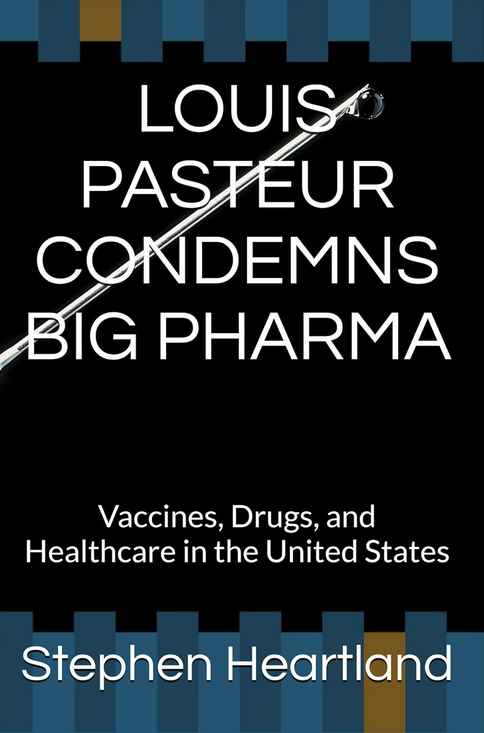
A timely take on the current state of vaccination science and policy in America, Louis Pasteur Condemns Big Pharma: Vaccines, Drugs, and Healthcare in the United States by Stephen Heartland is an informative and potentially controversial guide for protecting your autonomy and health.
As the author reminds us in the opening pages, when it comes to pro-vaccine and anti-vax ideologies, people know where they stand, and the lines are pretty much set. Refreshingly, this book doesn’t attempt a complete takedown of Big Pharma, but is instead a well-structured presentation of arguments and potential solutions.
Beginning with an expositional chapter on how our society reached such a deeply divided place regarding medicine and public health, the second chapter deals with the titular vaccine-inventor himself, Louis Pasteur, and how his revolutionary contributions to science are still relevant in everything that medical researchers, healers, and scientists do today. Alternately historical, anecdotal, and charmingly personal, this section highlights how key lessons from the past are no longer always considered in our contemporary approach to medicine.
Chapters 3 and 4 explore and expand upon possible solutions to remedy the stranglehold Big Pharma has on various national systems, in order to make our communities and bodies more resilient to their influence. Many of the author’s points regarding healthcare systems and Big Pharma/Big Tech naturally include other elements of the modern world, from wealth inequality and the profiteers of capitalism to public health hierarchies, lobbying, and the public degradation of fact-based logic. The final chapter is the most hopeful, and one that may unite diverse readers, as it suggests clear and practical ways to become directly involved and knowledgeable in your own life, thus providing more agency, confidence, and understanding.
While the author’s personal views on vaccine safety are made clear by his overall argument, he does not veer into the realm of uncritical conspiracy theory. His family’s personal experience with a child’s vaccine-related illness is heartbreaking and relatable, and though some may view her tragedy as anecdotal, and not a condemnation of the overall vaccination system, the pain and passion it has inspired in the author is very real, which is both moving and persuasive. His decision to seek and explain a middle path – a compromise on the binary of vaccine opposition – is therefore admirable, and becomes an unexpected vehicle for a much larger political message.
That said, many of the arguments that buttress the author’s thesis are frequently peppered with subjective opinions and unverified facts; data is king in the realm of public health, and this book offers a limited amount of peer-reviewed information that argues against current vaccine protocols. There are also bursts of informality and unnecessary hyperbole that remind readers of the writer’s bias. Despite these tone-related issues in execution, the structure of the book is clear and intuitive, delivering practical solutions to this contentious issue, while also outlining tools and tactics for other types of movements and initiatives.
Ultimately, Heartland argues for readers to be more informed, think holistically and critically, and to reject blind acceptance of American media coverage when it comes to issues affecting the welfare of the public. Regardless of your political stance or firmly entrenched belief towards vaccines, that is valid advice given our contemporary landscape, so despite the book’s rather transparent stance on one side of the debate, this is an informative and inherently thought-provoking read.
Book Links
STAR RATING
Design
Content
Editing
Get an Editorial Review | Get Amazon Sales & Reviews | Get Edited | Get Beta Readers | Enter the SPR Book Awards | Other Marketing Services























Leave A Comment